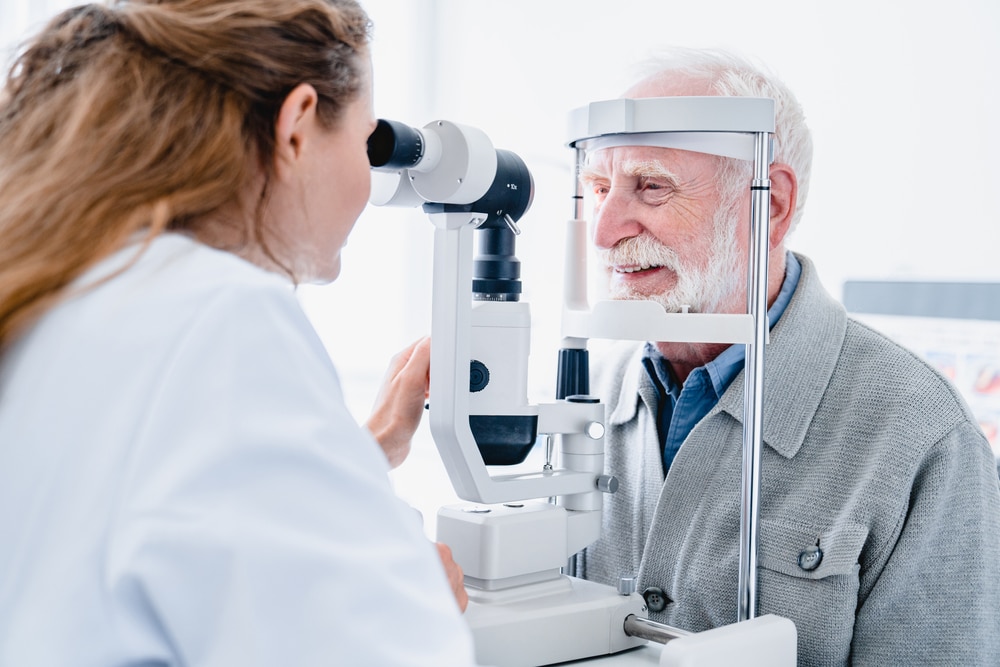Healthy Aging Includes Healthy Vision
As you age, it is normal to experience vision changes. In some cases, these can be problems once you pass age 40. By this time, you are at a higher risk of eye disease. However, it doesn’t have to be that way; you can protect your vision and prevent visual impairment. You should know this information to learn about age-related vision loss and how to maintain healthy vision as you age.
Several types of age-related eye conditions can cause vision problems. Refractive errors involve focus issues but are generally normal as you age. Presbyopia is a refractive error that usually develops by around the age of 45 and makes it difficult to focus on content up close. However, this can be corrected with glasses such as bifocals or progressive lenses if a person is both nearsighted and farsighted.
Age-related diseases that can occur include glaucoma, cataracts, and AMD. Glaucoma affects the optic nerve in the back of the eye and can affect one or both eyes. Cataracts cause clouding of the lens of the eye and blurred vision. AMD is a slow-developing condition that affects light-sensitive tissue and leads to loss of central vision.
Diabetic retinopathy is a complication of diabetes that can lead to blindness. It affects one out of every three individuals over 40 and is the most common cause of visual impairment.
What Increases the Risk of Visual Impairment as You Age?
Various factors can increase your risk of visual impairment as you age. If you have a chronic condition such as diabetes, arthritis, or heart disease, your risk is generally higher. Other problems include depression, falling, and social isolation. These issues can cause a decline in quality of life and daily function. Vision issues can cause difficulty following instructions regarding medications and other health instructions. It is crucial to prioritize your visual health to prevent vision loss as you age.
Problems That Arise with Low Vision
Of course, if you suffer from low vision as you age, it can affect your normal daily activities. Many of these are things people take for granted. Sadly, if you have visual impairment due to age-related eye diseases, you can’t get a quick fix with glasses, contact lenses, medication, or surgery. Low vision can affect your ability to drive, read, distinguish colors, clearly view small and large screens, and even recognize people’s faces.
Although low vision doesn’t occur independently, your risk is more significant once you pass age 50. If you’re affected by this issue, speak with an ophthalmologist about rehabilitation options that can help you preserve what vision you still have available.
Steps to Take to Lower Your Risk of Visual Impairment
You can take steps to reduce your risk of visual impairment as you age.
Schedule Regular Eye Exams
Part of your preventive measures should include regular eye exams. If you have an age-related eye disease, the doctor can diagnose you earlier and provide treatment.
Eat Healthy Foods
Eat plenty of foods high in antioxidants. This should include dark, leafy greens like spinach, kale, and collard greens that can help protect your eyes. Avoid smoking or quit if you are a smoker. This is one of the best ways to protect your eyes and prevent eye diseases.
Know Your Family History
Knowing your family history is crucial as well. Some eye diseases are genetic, which increases your risk. The earlier one is detected, the better the chances are of successful treatment.
Book an Eye Appointment Today
If you are in New Jersey and want to book an appointment with one of our skilled ophthalmologists or optometrists, contact Eye Care of New Jersey to schedule a consultation today.



